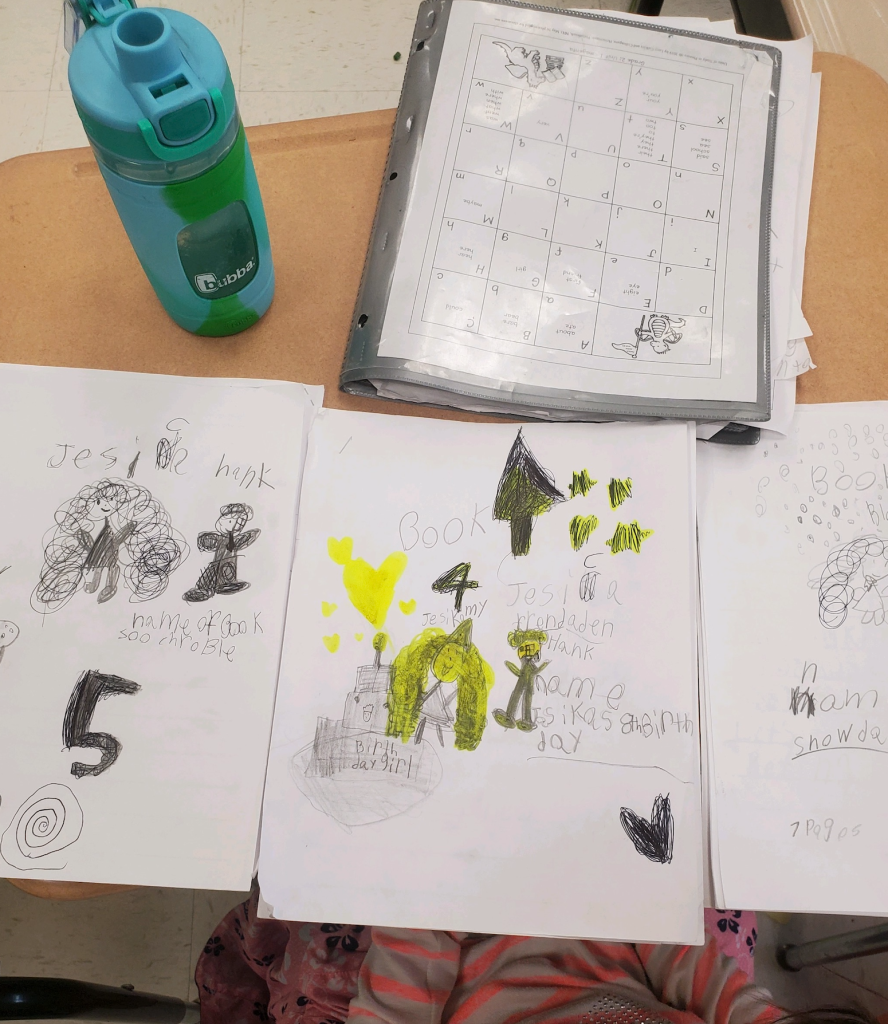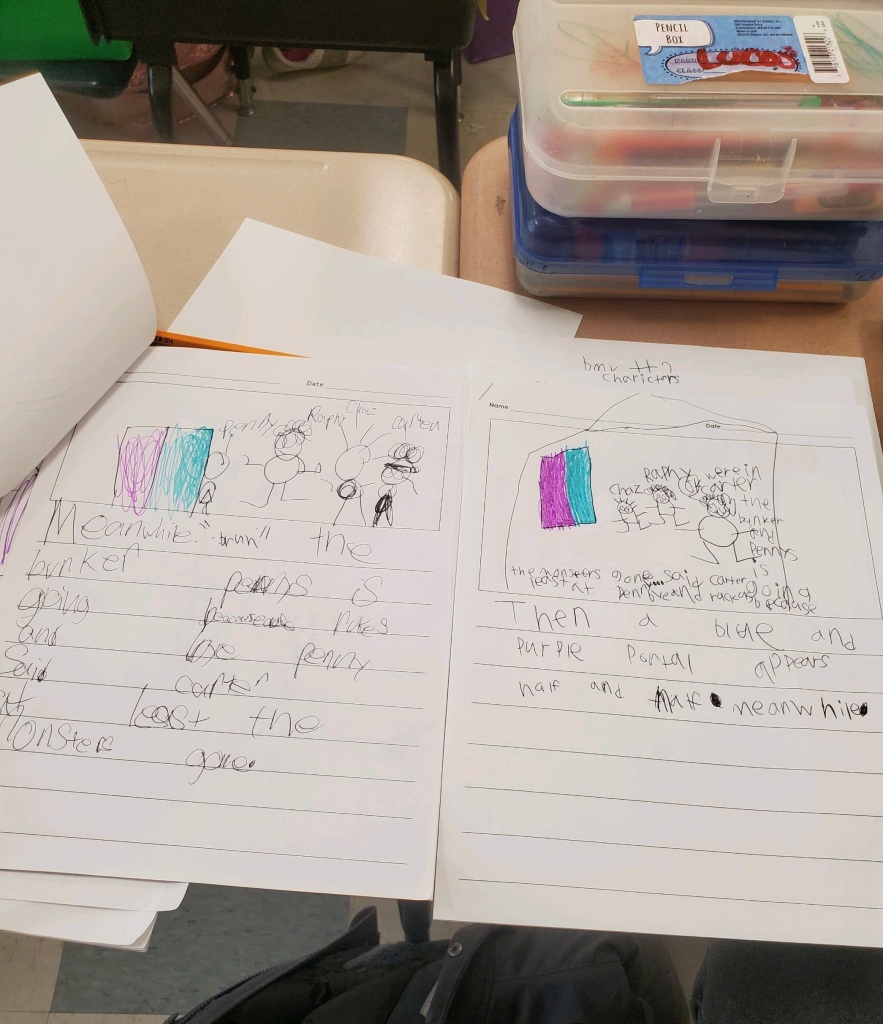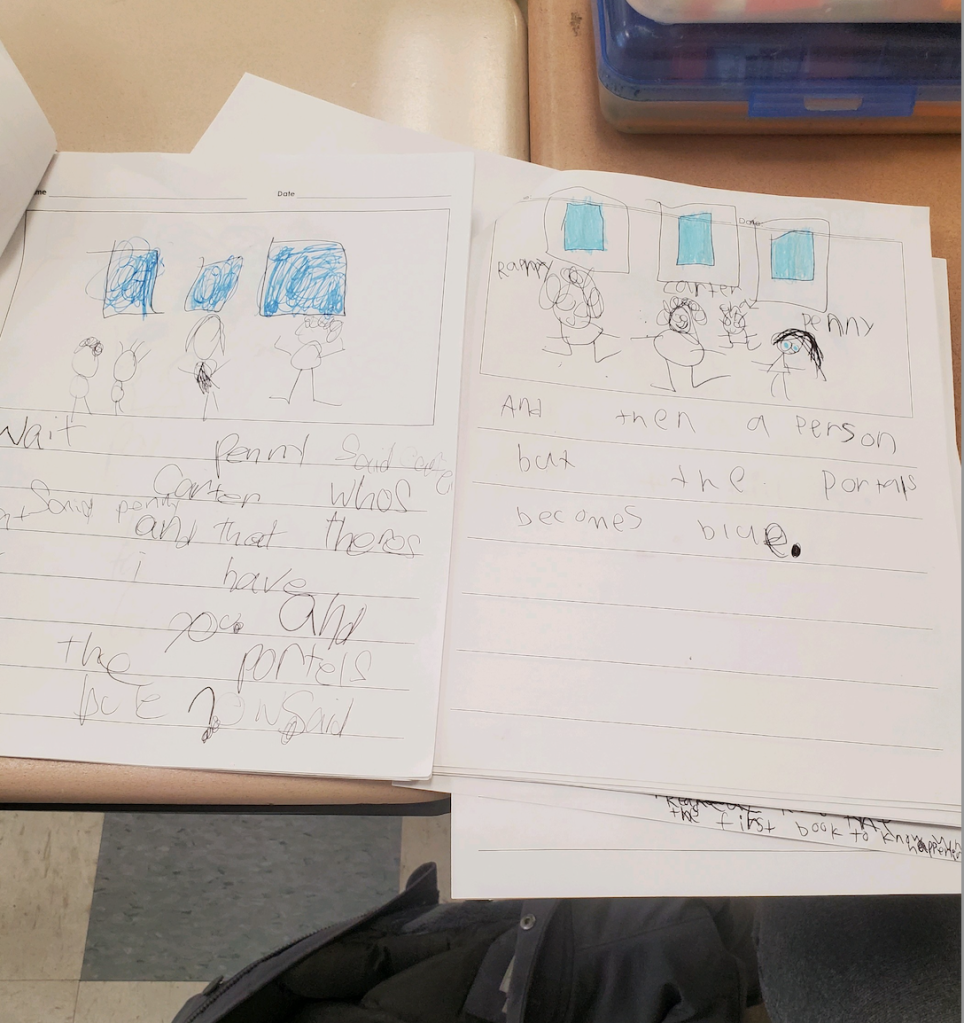It is Friday afternoon, and the weekend is coming on fast. The students are moving around the classroom with some urgency for writing. What does urgency look like? Children are acting out their writing with gestures to match. Some are collecting papers and supplies for writing; while others are in deep conversation about who is going to “do” what part of their series books over the weekend. Over by the cubbies, kids are scooping up their writers notebooks, filled with a slew of writing possibilities, and shoving them inside their backpacks. What does urgency sound like? Their voices bubble up into a frenzy trying to catch their ideas onto paper, and then right back down into thoughtful murmurs rereading their words to each other. Little chairs are scraping on the linoleum tiles as kids get up and down papers crunching; sharpeners wining plastic pencil boxes opening with soft pops. All of our students are trying to get in those last minute ideas to guide their weekend writing projects. The urgency felt by the students was because their writing mattered to them – this is learning with a sense of agency. Their energy was innate, it was of their own doing – this what a joyful agentive classroom looks like and sounds like.
Of all the initiatives, and mandates, standards, and assessments let us not forget to prioritize joyful learning. When speaking about teachers, Dr. Mary Howard once said:
Writing is one of those beautiful learning opportunities that can deliver critical thinking, agency, and joy all in one. Right now our students are writing series books. It would seem that all of them have decided to have their characters make cameo appearances inside each other’s stories. Oh the power to create worlds for their characters to inhabit. Writing is a social beast, and they are learning how to use their words to explore the imaginary worlds of their own making, it is really something to witness. That and kids are really loving the series books they are reading. They are eager to try on craft moves they see in their books. Even though our students are just eight-years-old, they are authors. What motivates them? They want what all authors want. They want to be heard, to be validated, and more than that to find an audience.
Looking Through the Eyes of a Writer: Access, Language, and Choice
Conner has really grown into his identity as a writer. He walks around our school with a notebook and pencil in hand, even when he is going to recess. Writing has become a way for him to express himself and work through his feelings. His love of writing has spread throughout our classroom, he has grown a community of writers that he counts on for ideas, advice, and feedback. They check-in with each other first thing in the morning, throughout the day and before they leave school. This is a natural part of their day which they look forward to.
It wasn’t always this way. At first, Conner didn’t see himself as a writer. He knew he had great ideas but he didn’t have the resources and supplies he needed to do the work he envisioned. Day after day, we provided him with different resources; a notebook with stickers, colored pencils, mentor texts that sparked his interest, and most importantly time! These small gifts, coupled with high expectations and our deep belief in him as a writer, made all the difference. By providing Conner with access, language and choice, we created the conditions for him to grow into an agentic writer.
Access:
- Freedom – he has decided to write during lunch.
- Community – he is actively checking in with peers to give and get moral support
- Resources – he is making the most of his time writing and becoming more efficient.
Language:
- Texts – he is borrowing language from other mentor texts
- Academic – he can converse with others about the writing process.
- Crafting a writing identity – he is a writer and is cultivating a growth mindset
Choice:
- Feedback – he is giving thoughtful feedback, and is acting on the feedback he receives
- Mixing genres – he is deciding how to bring in other genres of writing in his work
- Ways to publish – he is making choices about how to publish his work
Teachers who give these young authors the time and space for writing through access, language, and choice are helping them to discover how to use their voices to make a positive impact. Having the opportunity to be heard and celebrated as writers opens up the floodgates for joy.



